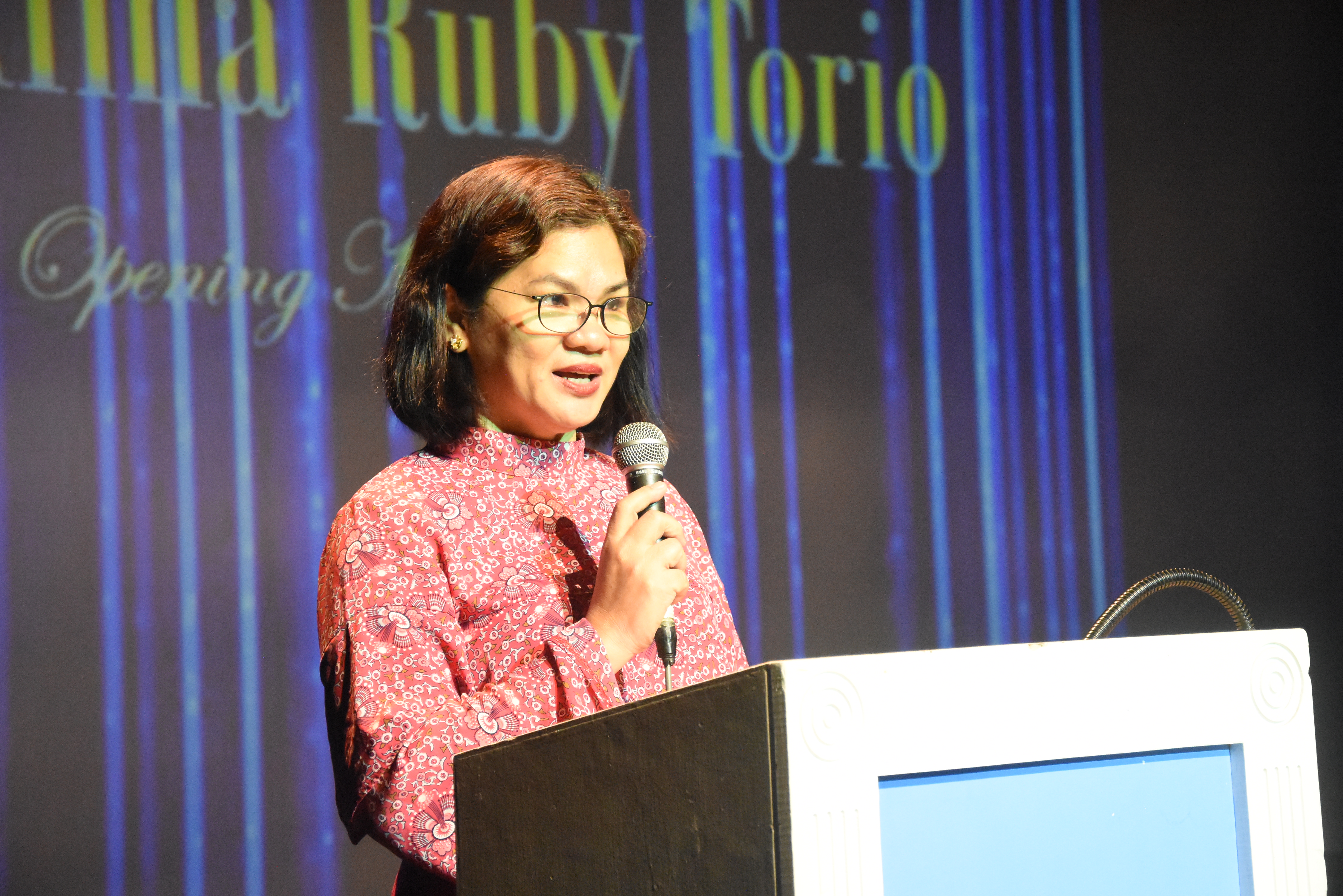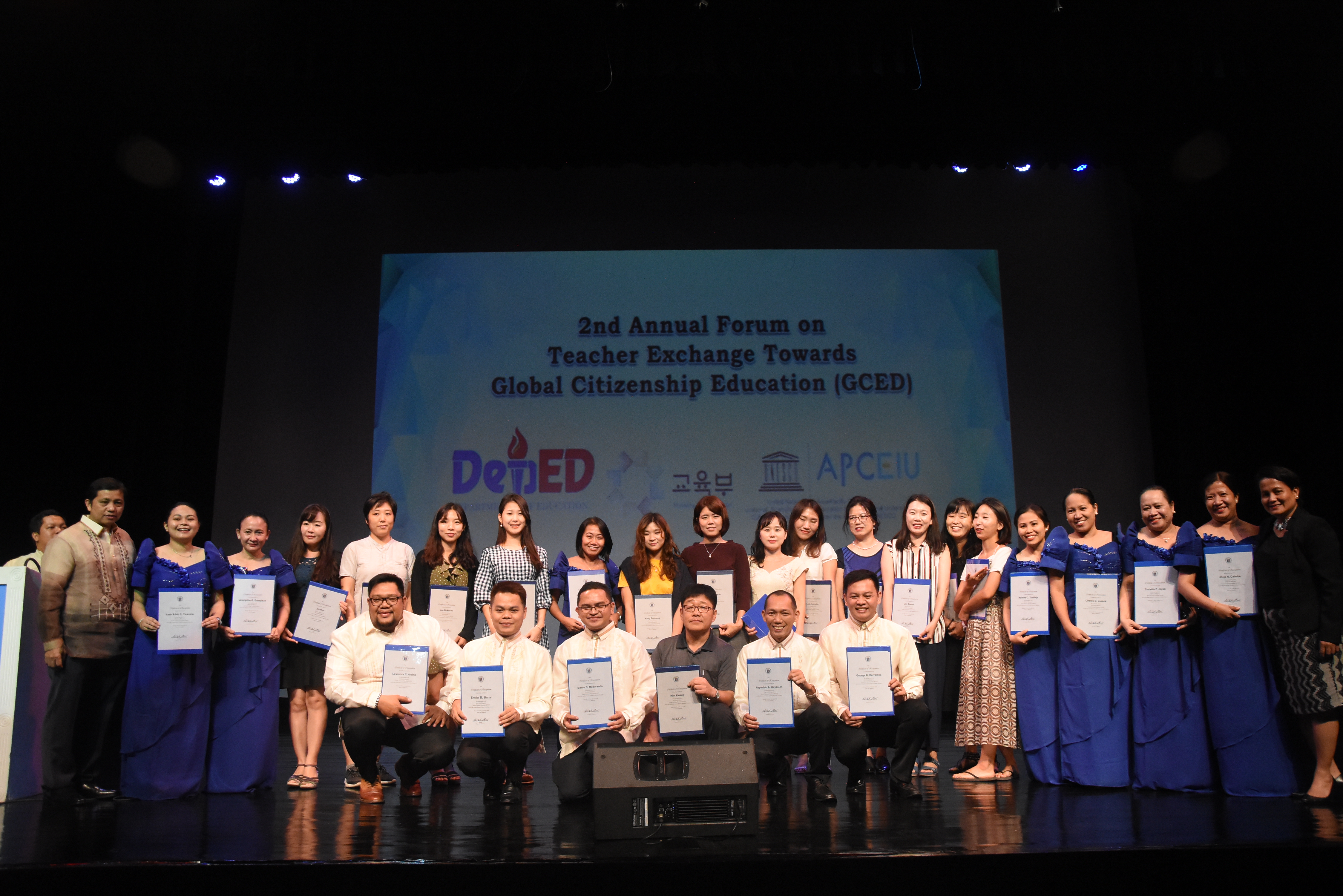PASAY CITY, December 17, 2018 – The Department of Education (DepEd), through its International Cooperation Office (ICO), gathered around 300 teachers, education leaders, and other representatives for the 2nd Annual Forum on Teacher Exchange Towards Global Citizenship Education on November 26 at the GSIS Theatre in Pasay City.
The annual forum aims to serve as a platform to discuss teacher education programs and innovations towards Global Citizenship Education; share stories and best practices of Korean-Philippines Teacher Exchange Program (KPTEP) participants; report on the initiatives and activities of the KPTEP Alumni Association; and discuss ways forward on expanding the reach and impact of the program.
In her speech, Assistant Secretary for Curriculum and Instruction Alma Ruby Torio expressed her gratitude for the teacher exchange program, and underscored its importance in improving the curriculum and the delivery of basic education.
“This program is a testament that indeed, we live in a small world – an interconnected world wherein all are brothers and sisters, regardless of nationality, culture, religion, or even political belief. We hope that through this program, our teacher-participants will imbibe the values of global citizenship education in a deeper and more personal way,” Torio stated.
She also highlighted that the power of education has no boundaries, and that it does not only provide a wide range of knowledge, but also helps promote peace in the society; reduce poverty; remove gender discrimination and inequality; promote women and children’s right; bring good governance; remove corruption; boost economic growth; save many lives; improves health, etc.
Torio further emphasized what collaborative efforts may bring to the learners, and the whole education community: “All of us, whether you are a teacher, school official, regional, division or central office officials – together, we must continue to provide all our learners with opportunities and experiences that bring out the best in them.”
Moreover, DepEd-ICO Director Margarita Ballesteros reminded all KPTEP Filipino exchange teachers to make use of what they have learned in the program, and incorporate it in their own system for the betterment of the country’s education system.
Ballesteros also conveyed her appreciation to the Korean exchange teachers for sharing their lives and experiences with the Filipino students, teachers, and administrators. She likewise thanked the regions and divisions that took the challenge and opportunity in hosting the said exchange teachers.
The KPTEP is initiated by the Ministry of Education (MOE) of the Republic of Korea and implemented through the Asia-Pacific Centre of Education for International Understanding (APCEIU). The MOE of Korea and DepEd began the program in 2012 under the framework of the Asia-Pacific Exchange for Global Education (APTE) and on the basis of the Cultural Agreement between the Republic of the Philippines and Republic of Korea on April 27, 1973.
END





